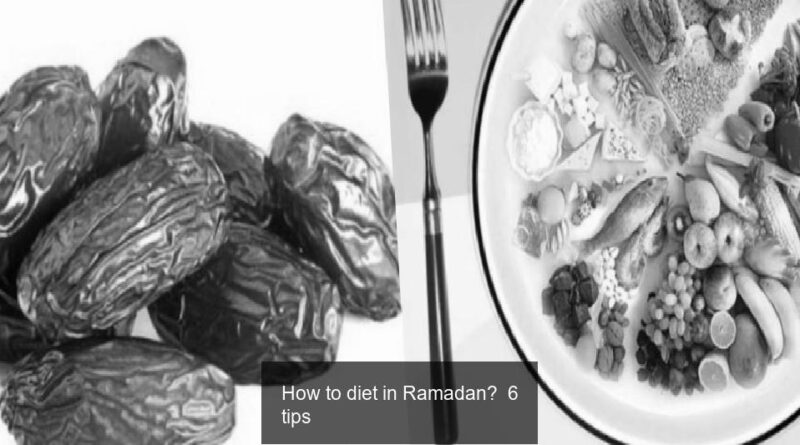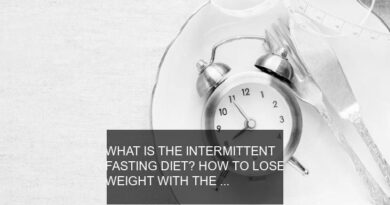How to diet in Ramadan? 6 tips
The month of Ramadan is one of the five pillars of worship in Islam and is celebrated by Muslims all over the world. Fasting in Ramadan means giving up eating and drinking during the day. For this reason, dieting during Ramadan can be a problem, but it is possible to eat healthy by taking some precautions.
Dieting during Ramadan is valuable not only for losing weight, but also for keeping your body healthy. Therefore, fasting people should plan their sahur and iftar meals with stable and healthy foods. A healthy diet should include foods that contain protein, fiber, and healthy fats. In sahur, healthy foods such as milk, yogurt, eggs, whole wheat bread, vegetables and fruits should be consumed. In the iftar meal, it should start with light foods and move on to the main meal. Protein-containing foods should be preferred and fried foods, fatty foods, sugary foods and carbonated drinks should be avoided.
Water consumption is also very valuable during Ramadan. Being dehydrated throughout the day can cause health problems. Therefore, it is necessary to drink enough water in the middle of iftar and sahur. In addition, avoiding hot environments and very physical activities will also reduce water loss.
In Ramadan, healthy snacks should be preferred instead of junk food. Healthy foods such as nuts, fresh fruits and vegetables will help you maintain strength throughout the day.
Ramadan is a strong period for the body. Therefore, you also need to regulate your physical activities. You should avoid very physical activities and do sports at appropriate times.
As a result, it can be difficult to diet during Ramadan, but it is possible to eat healthy with a healthy diet. A healthy diet should include foods that contain protein, fiber, and healthy fats.
How to diet in Ramadan?
Ramadan is a month when we fast and our eating system changes. Therefore, dieting during Ramadan can be more of a hassle due to the difficulties of fasting. However, it is possible to have a healthy diet by taking some precautions and consuming the wrong foods.
Here are some tips for dieting during Ramadan:
- Eat a hearty meal at sahur: Consuming a meal containing enough protein, fiber and healthy fats at sahur will help you stay full for the whole day. Therefore, choose healthy foods such as milk, yogurt, eggs, whole wheat bread, vegetables and fruits for sahur.
- Plan your iftar consistently: To plan iftar in a healthy way, first break your fast with a light food such as fresh fruit juice, dates or milk. Afterwards, eat light foods such as soup, vegetable dish or salad. Choose foods containing protein as the main meal. Avoid fried foods, fatty foods, sugary foods and carbonated drinks.
- Pay attention to water consumption : It is valuable to pay attention to water consumption during Ramadan. Being dehydrated throughout the day can affect your well-being in significant ways. Take care to consume enough water in the middle of iftar and sahur. Also, avoid hot environments and very physical activities to avoid dehydration.
- Choose healthy snacks instead of junk food: Instead of consuming junk food during Ramadan, take care to consume healthy snacks. Choose healthy foods such as nuts, fresh fruits, vegetables and hummus.
- Avoid overeating: Eating too much during Ramadan can cause you to gain weight and have digestive problems. Therefore, take care to eat in moderation and avoid going to bed too quickly after a meal.
- Adjust your physical activity schedule:It is valuable to adjust your physical activity schedule during Ramadan.




